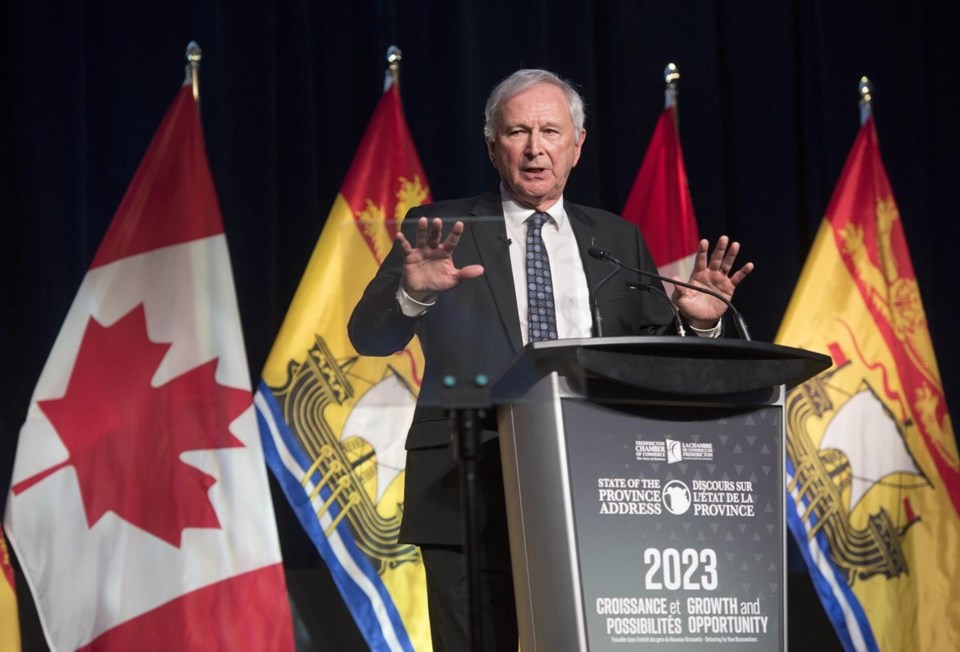FREDERICTON — New Brunswick Premier Blaine Higgs says his government will align the province's carbon pricing plan with Ottawa's so-called backstop program.
The move, announced Thursday, will bring New Brunswick in line with the rest of Atlantic Canada.
The decision means the federal government will apply its carbon tax and will be responsible for redistributing the revenues.Â
Under the federal program, 90 per cent of the tax revenues collected will be returned to residents through rebate cheques.
Premier Blaine Higgs issued a statement saying the carbon pricing plan introduced by the province in 2020 will be ditched because the federal government announced last fall it would start applying its program across Atlantic Canada.
As a result, the province will stop collecting the carbon charge, but Higgs said his government remains committed to previously introduced tax reductions and funding for climate change initiatives.
Despite the harmonization of the program, the Progressive Conservative premier couldn't resist taking a shot at Ottawa.
"As we have said from the outset, the federal carbon tax has and will continue to result in higher prices on everything," the premier said in a statement.
"We remain concerned the tax will continue to have a larger impact on individuals, businesses, and the economy.”Â
Higgs said he expects New Brunswick residents to receive rebate cheques similar to those sent to P.E.I. and Nova Scotia, which he says amount to $960 and $992 respectively for a family of four on annual basis.
This report by The Canadian Press was first published Feb. 16, 2023.
The Canadian Press




